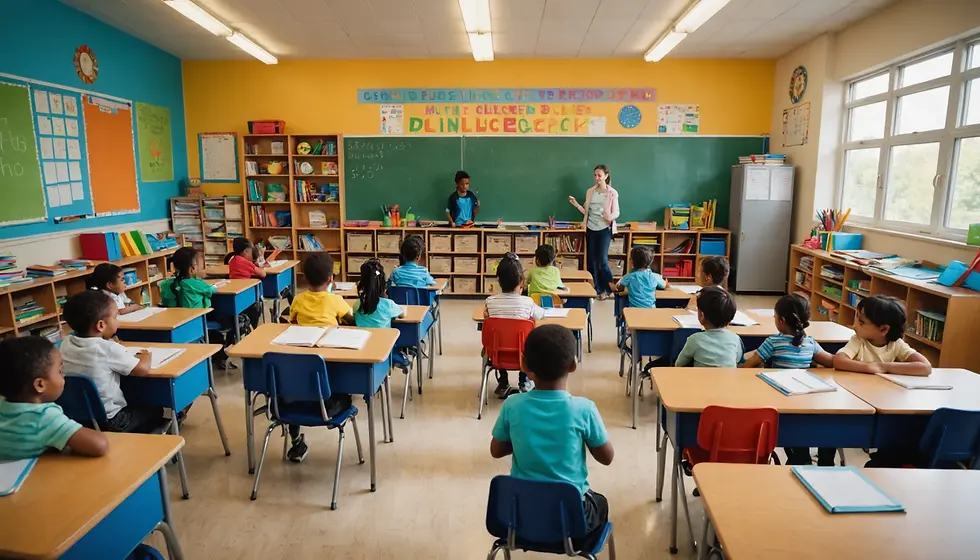empathy is the best quality to teach to a child
- sandro ginouves

- 23 ene 2025
- 3 Min. de lectura
Teaching children the right values is crucial in shaping their character and future. Among the many qualities parents can instill, empathy stands out as an essential trait. Empathy, or the ability to understand and share the feelings of others, nurtures healthy relationships and builds a compassionate society. In a world that often prioritizes individual success, teaching empathy can help children grow into emotionally intelligent adults.
The Importance of Empathy
Today’s fast-paced world sometimes overlooks feelings, making it vital to develop empathy in children. Research shows that children who exhibit empathy are 60% more likely to be socially accepted by their peers. Empathetic kids also tend to show greater emotional regulation. This means they handle stress and conflict better, as they can recognize and respect others' feelings. For instance, a child who understands when a friend is upset and offers comfort is more likely to maintain strong friendships throughout their life.

How to Foster Empathy in Children
Fostering empathy requires intentional effort. Here are a few practical strategies parents can use to help their children develop this vital skill:
Model Empathy: Children learn by watching. When you demonstrate kindness, understanding, and active listening in your daily interactions, your child will notice. For example, if you listen attentively when a neighbor shares their troubles, your child picks up on the importance of being present for others.
Encourage Open Conversations: Create an environment where your child feels comfortable sharing their feelings. Ask them open-ended questions about their day, experiences, and friendships. Discuss emotional situations in stories or movies. For instance, after watching a film, you might ask, "How do you think the main character felt when they faced that challenge?" This encourages deeper thinking about emotions.
Engage in Volunteer Work: Community service is a powerful way to help children appreciate different perspectives. When kids volunteer, they not only help others but also learn to value what they have. For example, helping at a local food bank can give children insight into the struggles of others, making them more compassionate.

Real-Life Benefits of Empathy
Empathy influences not just personal interactions but also social harmony. Children who learn to be empathetic are more likely to have strong friendships and excel in teamwork. Statistics indicate that teams with empathetic members are 25% more effective at achieving goals. As these children grow, they adapt better to diverse social groups, bridging cultural gaps and fostering unity.
Moreover, empathy is closely linked to emotional intelligence. Individuals with high emotional intelligence are less likely to engage in bullying. They often excel in leadership roles, both personally and professionally. By prioritizing empathy, parents help shape future adults who are resilient and considerate.

Shaping a Kinder Future
In a world that often emphasizes individual achievement, teaching children the quality of empathy is more important than ever. Nurturing this trait enriches their lives and builds a more compassionate society. By fostering empathy, we prepare our children to become understanding, kind-hearted individuals able to create meaningful connections.
Teaching empathy requires patience and commitment, but the benefits for both parents and children are profound. Together, we can create a generation that values kindness and compassion above all.







Comentarios